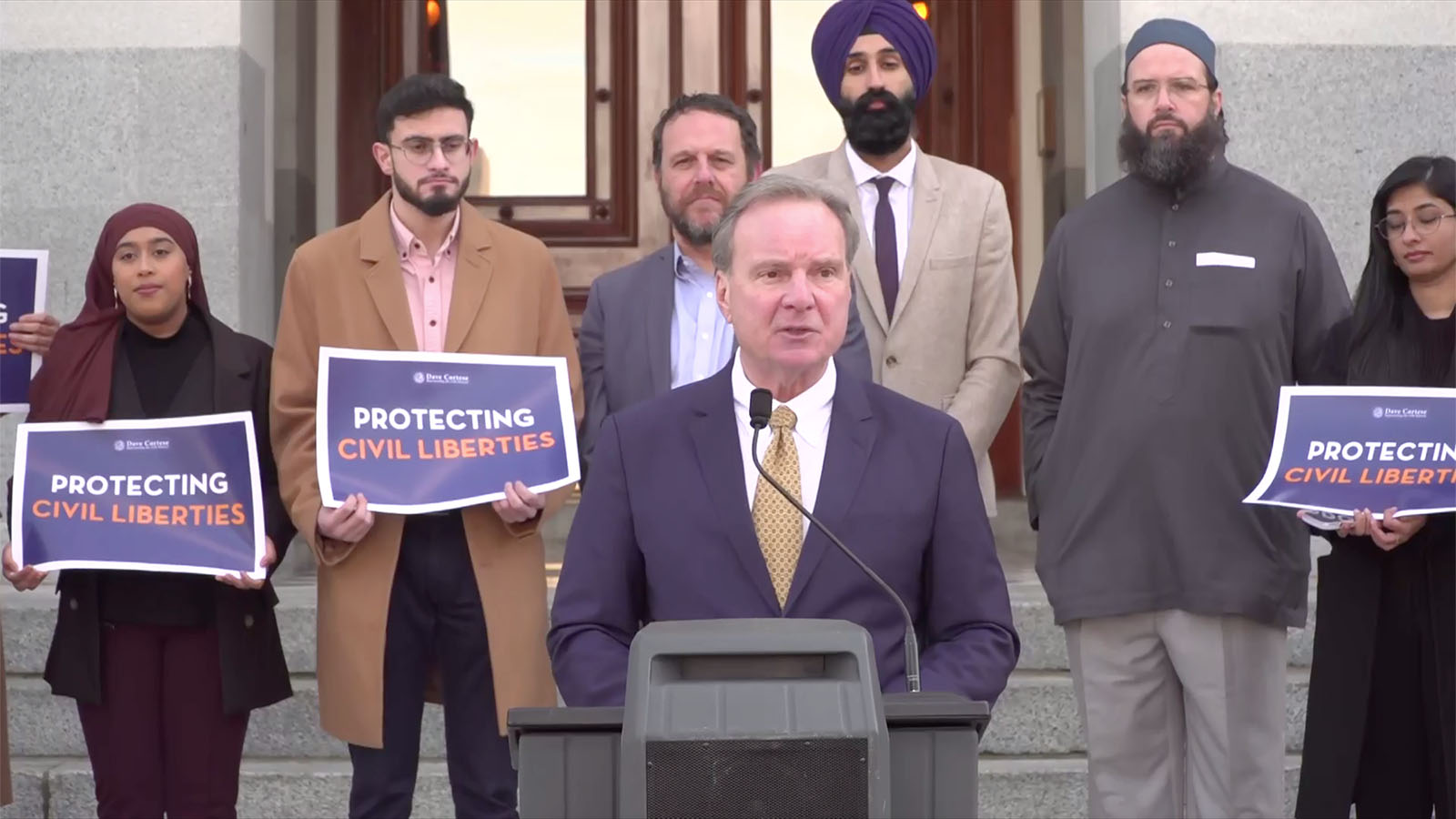
(RNS) — Rami Nsour, an advocate for the incarcerated, has seen firsthand how difficult it can be for those being held in California’s jails and prisons to practice their faith. As his clients are transferred from one facility to another, he said, they have to adhere to different rules governing religious clothing and grooming.
On Monday (Feb. 6), Nsour joined California lawmakers and multifaith leaders as they unveiled legislation that would create a statewide policy for religious clothing, headwear and grooming practices at state and local correctional and detention facilities.
“Protecting prisoners’ freedom of religion should not be seen as coddling the inmates or ‘hug-a-thug’ culture, two terms I deplore,” said Nsour, who co-founded the nonprofit Tayba Foundation to assist those impacted by incarceration. “Protecting that right is upholding our oath to the Constitution.”
Written by Sen. Dave Cortese, a San Jose Democrat, the bill, SB 309, aims to “stop incidents of religious persecution in prison,” the senator said during a press conference outside the state Capitol on Monday.
While California Department of Corrections and Rehabilitation policies refer to the right to wear certain religious clothing and headwear, those rules are in effect only at state-run facilities, according to a fact sheet about the proposed bill. Detention facilities in local jurisdictions have a wide range of policies and procedures.
Additionally, the state’s department of corrections and rehabilitation only provides “minimal protections” and “does not meet the heightened protections as provided under federal law,” according to the fact sheet.
The legislation will benefit not only prisoners but all Californians, Cortese said, pointing to research showing that inmates who are allowed to “freely exercise religious practice and dress” are less likely to be involved in violent incidents while serving their sentence and are less likely to return to jail or prison.

California State Senator Dave Cortese, joined by multifaith leaders, unveils a bill that would create a statewide policy for religious clothing, headwear and grooming practices among incarcerated individuals in state and local correctional and detention facilities, Monday, Feb. 6, 2023, in Sacramento, California. Video screen grab
“Californians still maintain their basic civil rights when they become incarcerated. We need to stand for that,” Cortese said. “Muslims, Sikhs, Jews and other religious minorities should preserve their rights to religious dress and practice without harm or disruption.”
RELATED: Muslim woman sues Los Angeles Police Department for forcibly removing her hijab
Nazeehah Khan, with the California chapter of the Council on American-Islamic Relations, said the organization has represented numerous Muslim women in the state who have been stripped of their hijab, the traditional Islamic headscarf, while incarcerated or in custody. These cases have resulted in Long Beach, Orange County and Santa Clara changing their policies, CAIR said in a statement.
“While these cases have been successful, the underlying issue of non-uniform policies addressing religious attire exists throughout the majority of the state,” Khan said. “Religious headwear, clothing and grooming are not just acts of religious expression. They’re the manifestation of a person’s identity, an embodiment of their values.”
Jasjit Singh, board president of the Jakara Movement, spoke in support of the bill, because, “for Sikhs, wearing our turbans is an integral part of practicing our faith.” Turbans, he said, “are part of our bodies. We are inseparable.”
For Singh, faith communities are a vital network of support for prisoners, and “that can play an important role in easing a prisoner’s transition back into communities.”
Rabbi Seth Castleman, director of the spiritually based mentoring program Exodus Project, said he has witnessed the religious rights of people taken away while incarcerated.
“We should be supporting the religious practice of people as a tool for reducing recidivism,” Castleman said during the news conference. “These are the bedrock values of our nation and something that both conservatives and liberals can get behind, the religious freedom of all people.”
According to Nsour, the legislation announced Monday is not about “supporting a self-help program” solely because of the impact it may have on the “desistance of crime.”
The bill, he said, “is about reminding us who we are as Americans — that every single person on this land, whether in prison or not, has the right to freely practice the religion of their choice.”

 Arabic
Arabic Chinese (Simplified)
Chinese (Simplified) Dutch
Dutch English
English French
French German
German Italian
Italian Portuguese
Portuguese Russian
Russian Spanish
Spanish